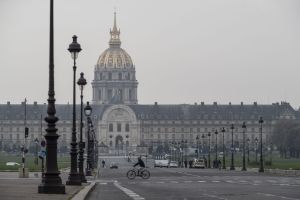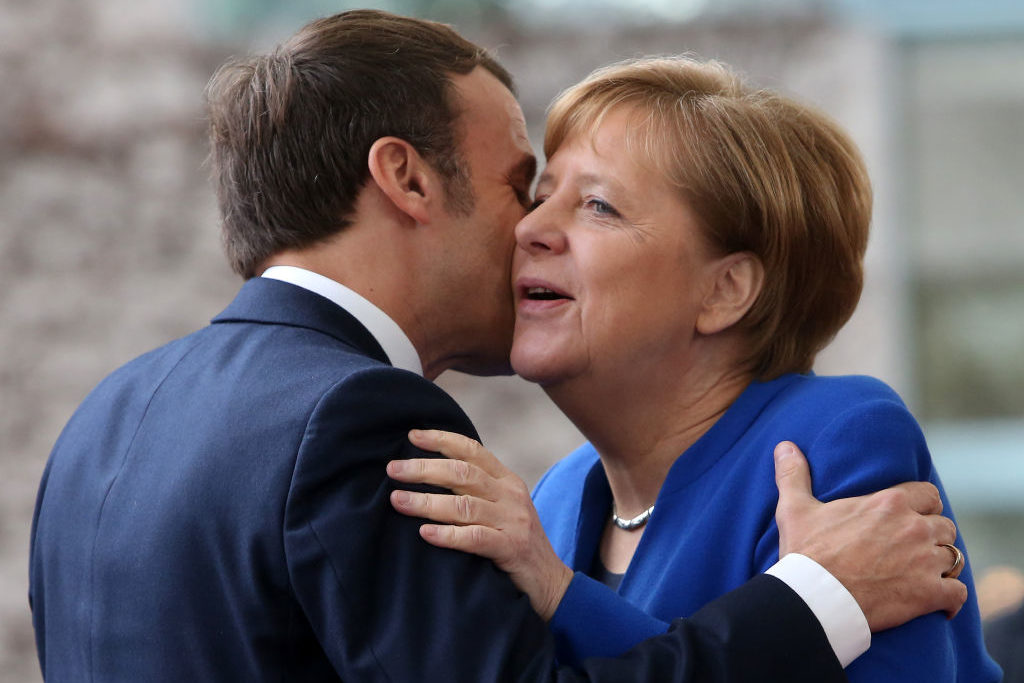‘He who is not a republican at 20 compels one to doubt the generosity of his heart; but he who, after 30, persists, compels one to doubt the soundness of his mind.’ Thus spake M. Anselme Polycarpe Batbie, a 19th-century French academic jurist whose sentiments, variously phrased, have also been attributed to John Adams, François Guizot and Georges Clemenceau. A generous heart and the ability to learn from experience are very good things, certainly. An even better one is common sense: a native attribute that age does not diminish. Mencken claimed that he had never changed his mind on any matter of importance. Donald Trump said in regard to John McCain that he preferred war heroes who didn’t get captured. Myself, I like thinkers who were right from the beginning —and stayed that way.
To believe otherwise, so it seems to me, is to suppose that the error of idealism, among the profoundest of all errors to which the human mind is prey, has any redeeming value whatsoever; which it plainly doesn’t. There is no moral virtue in thinking wrongly on any subject at any age. If to be born good is desirable — something no one has ever denied — then so is to be born wise and without illusions. What value could there possibly be in being wrong for part of your life — idealists, like all liberals, would generally say the best part — when you could be right for all of it?
Beginning in the early 20th century, Americans have given what is popularly called idealism an affirmative moral dimension and its opposite — realism — a negative one. When I was a youth, adults — educators especially — knew no higher praise than to describe Joe So-and-so as ‘an idealistic young man’: a prejudice that has stubbornly survived into the third decade of the 21st century. In philosophy, Idealism is the theory which sees mind, or what is spiritual and ideal, as the highest reality. More specifically, Idealism considers reality as in essence a spiritual thing, mind or reason embodied.
These propositions make sense only if by ‘spirit’ one understands the term in its religious sense, which most idealists since the 18th century never have done. Indeed, in the United States for the past hundred years or so the people who have spoken appreciatively of ‘idealism’ generally meant ‘optimism’, a vague and lazy term that seems to be shorthand for the unwillingness of the large majority of the American public to find fault in anything established in mass thought or opinion: the unreflective insistence that the liberal-democratic world is the best of all possible worlds and that to hold otherwise is wicked, and even immoral. This nonsense, like most metaphysical errors, is as dangerous as it ought to be obvious.
Idealistic beliefs encourage individuals to try to force reality into agreement with ideas in their own minds, while idealism in politics causes whole societies to attempt to make it conform to public myths and illusions by means of legislation, demagoguery and the media. The latter is precisely what is happening today in the United States, which explains why the rest of the world — including Europe, also liberal yet with a remnant strain of realism that Americans mistake for cynicism but in fact is a human and healthy pessimism — thinks she is going stark raving mad. Indeed, the most idealistic country Europe — and the world — have ever known was Germany between 1933 and 1935, whose crazed idealism was rooted in the equally insane theoretical speculation (almost universally confused with true philosophy as the classical world knew it) practiced by her Überintelligenz of the 18th and 19th centuries. The truth is that idealists are idealistic in the way alcoholics in their cups believe that they are geniuses, that their wives are beautiful and that they will wake up in the morning with a million dollars in their bank accounts.
For three centuries the German people have confused religion with idealism; more accurately, perhaps, they have conflated the two. Beginning with the afflatus of Emerson, the long-forgotten Concord windbag, a similar conflation has been occurring in the United States since the War Between the States. In Germany today, not even repentance by three-quarters of a century of sackcloth and ashes in atonement for the nation’s satanic behavior in the 1930s and 40s has been sufficient to prevent the hollowing-out of the country’s Protestant theology; a doctrinal disembowelment the Germans are currently performing on the German Catholic Church.
The same thing has been happening in America for at least a century. It appears to be a rule, indeed, that the more idealistic a society becomes, the less religious it is. The reason is plain. As mass sentiment, idealism is not just the opposite of religion; it is religion’s absolute and implacable enemy. It is an accepted but unexamined disposition, not a creed with a particular metaphysics entailing a code of behavior to instruct and guide human beings in their relationship with the Divine on pain of excommunication in this world and damnation in the next. Idealism comes naturally to liberal societies because, like modern bourgeois art, it has no inherent principles and no rules to follow. It comes easily precisely because it is easy, demanding nothing of individuals or societies save that they make the right noises on cue, play the part of Dr Pangloss to perfection, virtue-signal with the wild abandonment of dervishes — and ask no questions, of themselves in particular.
Due to the character of idealistic societies where the predominating idealistic chorus is intentionally monotonal, distinguishing a single voice from the great mass of singers is difficult. Nevertheless, in the case of the United States one of them in particular does stand out above the rest. It belongs to Francis Fukuyama, the author of a bestselling book published nearly three decades ago, The End of History and the Last Man, that fully and exactly expresses modern idealism in its American manifestation. Arguing as a Hegelian, Fukuyama claimed that liberal democracy is the ‘end point of mankind’s ideological evolution’ and the ‘final form of human government’. The ‘ideal of democracy’, he insisted, cannot ‘be improved on’. While ‘history understood as a single, coherent, evolutionary process, when taking into account the experience of all times’ does not move in a straight line, neither is it random nor unintelligible. The process is equivalent with modernization itself.
That was how many liberal democrats understood the ideal society as realized by idealists in the early 1990s. Thirty years on, the idealists in President Biden’s White House imagine their ideal world differently. So do their more realistically minded opponents wearing red ballcaps and carrying metaphorical pitchforks.
This article was originally published in The Spectator’s July 2021 World edition.





















